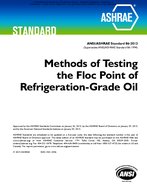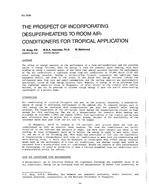Two of the most important fire and life safety systems installed in tunnels are the ventilation system and the fixed fire suppression system. Both aid in controlling the fire to allow for the safe egress of tunnel occupants. But operated at the same time, the two systems may impact each other such that they may reduce the efficacy of one another. A series of full scale fire, ventilation, and fixed fire suppression tests were performed in Mount Baker and Mercer Island Tunnel, part of Interstate 90, in Seattle, Washington. The suppression system was tested in Mount Baker Tunnel on a live fire to observe the fire extinguishing capabilities of the system. The transverse ventilation system was tested in tandem with the fixed fire suppression system to examine the displacement of water particles due to the ventilation system. Computational fluid dynamic (CFD) simulations of the displacement tests were run in ANSYS Fluent. The drift of the water droplets and air velocities are compared to the test data. Similar CFD simulations of a proposed baggage tunnel in Terminal A of Newark International Liberty Airport with jet fans and active fire and life safety systems in a fire scenario are examined. NIST’s Fire Dynamics Simulator (FDS) was used to model the baggage tunnel for Terminal A to address the risk of a baggage and tug fire in the tunnel. The ventilation system alters the path of the water droplets and controls the spread of smoke while the introduction of water droplets circulates the smoke and air, decreasing visibility but helping to overcome backlayering, and also impedes the airflow of the ventilation system. These interactions have large implications on visibility and must be considered to properly design fire and life safety systems.
Citation: ASHRAE Papers CD: 2014 ASHRAE Annual Conference, Seattle, WA
Product Details
- Published:
- 2014
- Number of Pages:
- 8
- File Size:
- 1 file , 2.1 MB
- Product Code(s):
- D-SE-14-C072


